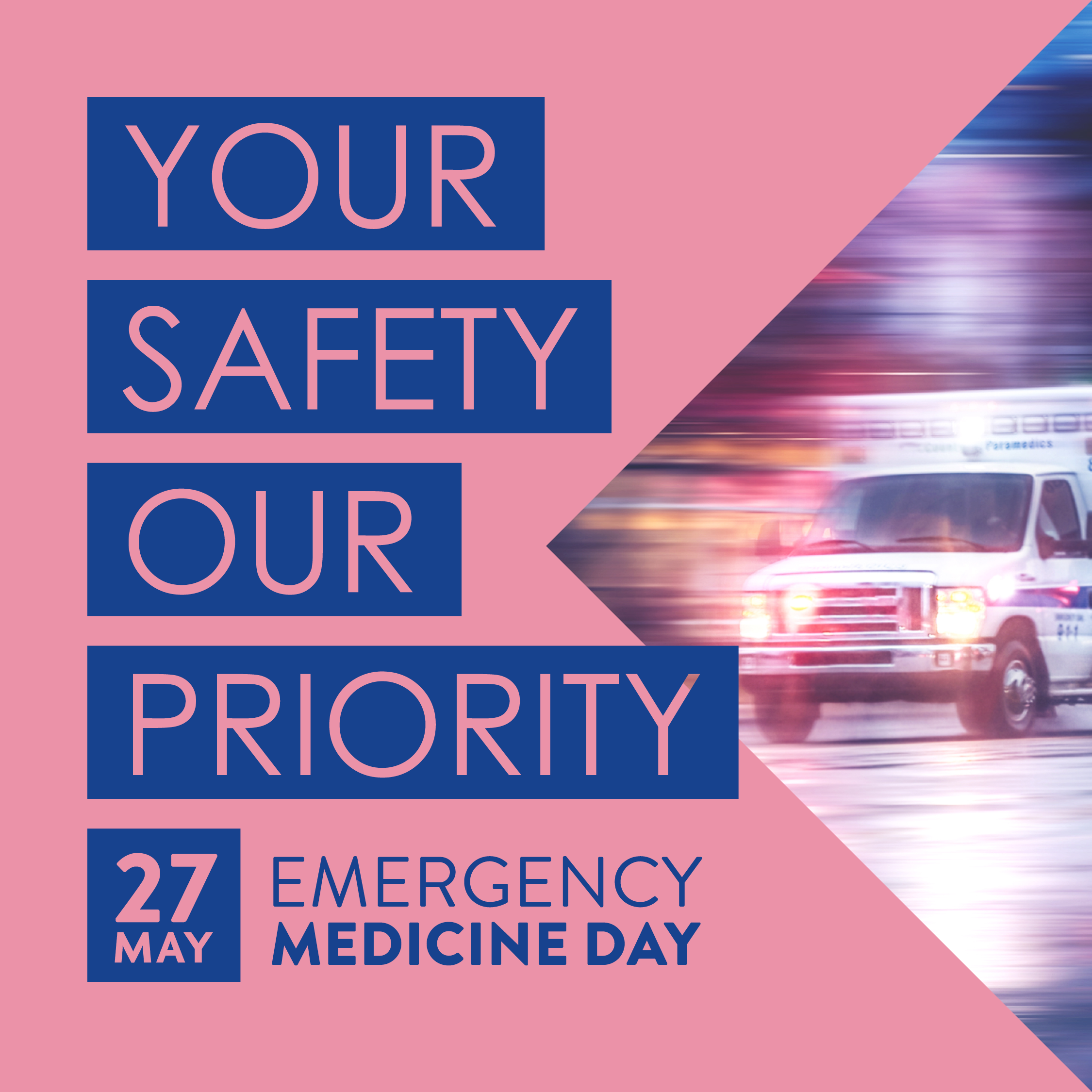EM Day 2023: A lack of safety is not part of the job
Saturday the 27th of May is Emergency Medicine Day. This year, the Emergency Medicine Day campaign is dedicated to safety – for patients and colleagues. ACEM President Dr Clare Skinner writes that we must work together to ensure safety in the ED and change the culture that tells us a lack of safety is just part of the job – because it isn’t.
I don’t know any emergency physicians who don’t have a story of experiencing violence or aggression while at work in the emergency department (ED).
Violence and aggression take many forms. Some of us tell those stories with our bodies, with injuries that impact our daily lives. Like the scar on my colleague’s forehead, or the catch I feel when I rotate my left shoulder. For all of us, the impacts are emotional and psychological, they change the way we interact with people and move through the world. For Indigenous colleagues, the violence can be cultural. Some, across the health system, have lost their lives to workplace violence.
All people have a right to be safe at work, including emergency department staff. We are human, and we are not immune to pain, fear, trauma, or suffering, simply by merit of the nature, or location, of our work.
We know, of course, that patients, their carers, family and whānau are often frustrated, frightened, and stressed. We also know there are often contributing factors to violence in the ED that can include confusion, delirium, and hallucinations, as well as alcohol and other drugs.
We know, that too often, emergency departments and hospitals are bound by a broken system that forces patients to endure overly long waits for the care they need, and that EDs are not restful or soothing places.
At the same time, all people have a right and need to be safe in every emergency department in Aotearoa New Zealand and Australia
I told my friend, who works for a bank, what I told you: I don’t know any emergency physicians who don’t have a story of experiencing violence or aggression while at work in the emergency department.
She was shocked, and said, “If someone swore at me at work, or hit me, or worse – it would be looked on as a crime – we would call security, or the police, and probably take legal action.”
But violence and aggression in the ED? Culturally, we’ve come to accept it as just part of the job. But it shouldn’t be. We are helpers, and healers.
To accept violence as “part of the job” is essentially saying to all healthcare workers: you don’t matter. Your body and your feelings don’t matter. People can harm you – if they have a reason.
These are the dynamics of abuse. And we cannot allow it to stand.
And it isn’t just us. It is patients in the ED too. Patients and their carers who are already scared, or sick or hurt, and now they are having to witness or encounter aggression or violence on top of that.
Every patient, carer, healthcare worker and hospital staff member need a safe place to receive, support and deliver urgently needed healthcare.
Fixing this wicked problem will require complex, whole-of-healthcare-system and whole-of-society responses.
The issues faced by the health systems in our two nations are complex and will take time to address, and we urge commitment to long-term measures such as the sufficient resourcing of the system and large increases in capacity, including staffed inpatient beds, disability services, primary care and aged care, and better, more humanistic, design.
In the short-term, governments, hospital administrators and all people involved in the operations of healthcare and hospital systems must collaborate with healthcare workers to consider what can be done to ensure EDs are safe, for all patients, carers, whānau and staff.
All staff must have ready access to properly trained security personnel so we can concentrate on delivery of emergency care to patients. A clinically imbedded, trauma informed team of security personnel should be part of every ED.
What can we do as individuals? We can examine our own internalised narratives that tell us that exposure to violence is just part of the job, and challenge it. We can refuse to accept it. We can support each other. We can advocate for, and help design, better processes and systems. We can support and protect our trainees.
The College is working to change the narrative around safer EDs, and it is advocating for concrete improvements to keep everyone physically, emotionally, culturally and psychologically safe. And we will not rest until we do.
This emergency medicine day please join me in recommitting to a culture of zero tolerance to violence. Because safer emergency departments mean safer patients, safer healthcare workers, and a safer future – for everyone.






